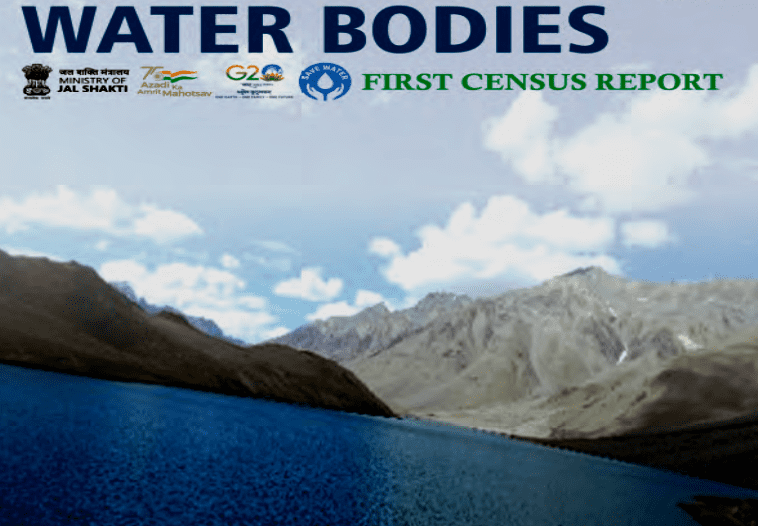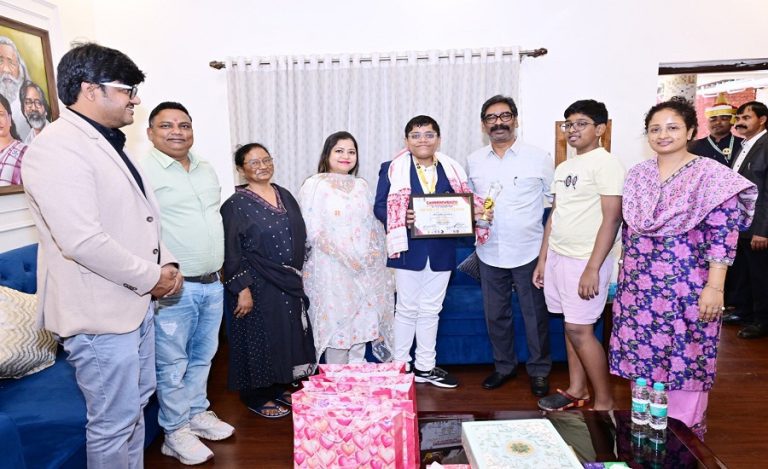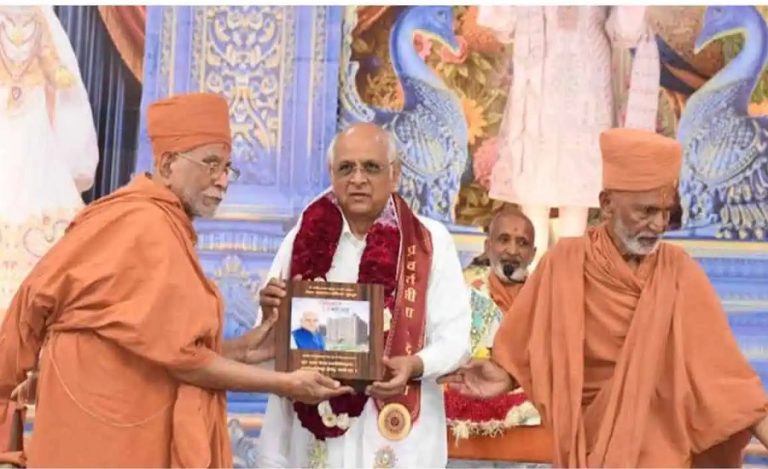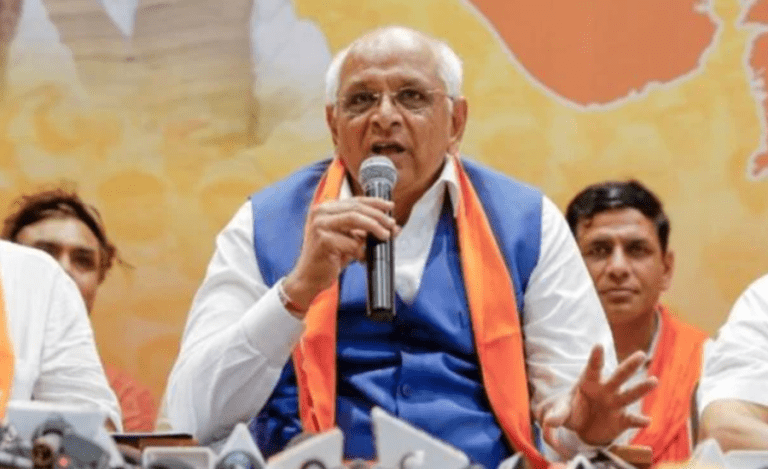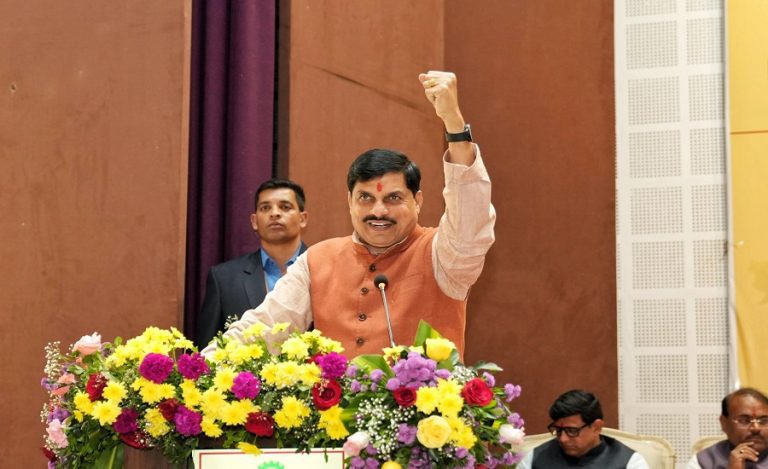India finally has its first-ever census on water bodies. The Jal Shakti Ministry released the report enumerating over 24 Lakh water bodies in the country. The top five states which fulfill “sujalam” part of the national song are West Bengal. Uttar Pradesh, Andhra Pradesh, Odisha and Assam.
The census provides a comprehensive inventory of India’s water resources, including natural and man-made water bodies like ponds, tanks, lakes, and more. It has also collected data on the encroachment of water bodies. The Census also highlighted disparities between rural and urban areas and varying levels of encroachment and revealed crucial insights into the country’s water resources.
First Ever Census on Water Bodies in India
— Archana Varma IAS 95 Assam (@archanavarmaIAS) April 23, 2023
Jal Shakti Ministry Releases Report Enumerating Over 24 Lakh Water Bodies
Census Reveals Crucial Insights Into The Country's Water Resourceshttps://t.co/ZKMCBFpI9j
Historic initiative by @MoJSDoWRRDGR . 👏 👏 pic.twitter.com/Z33hyJSKNK
The census was launched under the centrally sponsored scheme, Irrigation Census in convergence with the 6th Minor Irrigation Census in order to have a comprehensive national database of all water bodies. The information on all important aspects of the water bodies including their type, condition, status of encroachments, use, storage capacity, status of filling up of storage, etc was collected. It covered all the water bodies both in-use and not.
Of the total 2,424,540 water bodies, 97.1 percent are in rural areas and only 2.9 percent are in urban areas.
The census also took into account all types of uses of water bodies like irrigation, industry, pisciculture, domestic/ drinking, recreation, religious, groundwater recharge etc. Census has been successfully completed and the All India and State-wise reports have been published.
The key features/findings of the Census are as follows:
- 24,24,540 water bodies have been enumerated in the country, out of which 97.1% (23,55,055) are in rural areas and only 2.9% (69,485) are in urban areas.
- Top 05 States in terms of number of water bodies are West Bengal, Uttar Pradesh, Andhra Pradesh, Odisha and Assam which constitute around 63% of the total water bodies in the country.
- Top 05 States in terms of number of water bodies in urban areas are West Bengal, Tamil Nadu, Kerala, Uttar Pradesh and Tripura, whereas in rural areas, top 5 States are West Bengal, Uttar Pradesh, Andhra Pradesh, Odisha and Assam.
- 59.5% of water bodies are ponds, followed by tanks (15.7%), reservoirs (12.1%), Water conservation schemes/percolation tanks/check dams (9.3%), lakes (0.9%) and others (2.5%).
- 55.2% of water bodies are owned by private entities whereas 44.8% of water bodies are in the domain of public ownership.
- Out of all public owned water bodies, maximum water bodies are owned by Panchayats, followed by State Irrigation/State WRD.
- Out of all private owned water bodies, maximum water bodies are in hands of Individual owner/farmer followed by group of individuals and other private bodies.
- Top 05 States which lead in the private owned water bodies are West Bengal, Assam, Andhra Pradesh, Odisha and Jharkhand.
- Out of all ‘in use’ water bodies, major water bodies are reported to be used in pisciculture followed by Irrigation.
- Top 05 States wherein major use of water bodies is in pisciculture are West Bengal, Assam, Odisha, Uttar Pradesh and Andhra Pradesh;
- Top 05 States wherein major use of water bodies is in irrigation are Jharkhand, Andhra Pradesh, Telangana, West Bengal and Gujarat.
- 78% water bodies are man-made water bodies whereas 22% are natural water bodies. 1.6% (38,496) water bodies out of all the enumerated water bodies are reported to be encroached out of which 95.4% are in rural areas and remaining 4.6% in urban areas.
- The information on water spread area was reported in respect of 23,37,638 water bodies. Out of these water bodies, 72.4% have water spread area less than 0.5 hectare, 13.4% have water spread area between 0.5-1 hectare, 11.1% have water spread area between 1-5 hectares and remaining 3.1% of water bodies have water spread area more than 5 hectares.
The final results and completion of this report has been made possible by the strenuous efforts of all the officers and staff of Minor Irrigation (Stat) Wing of the Ministry of Jal Shakti under the supervision and support of Secretary, Department of Water Resources, RD & GR, Ministry of Jal Shakti, Shri Pankaj Kumar, as well as dedicated technical support provided by National Informatics Centre and determined efforts made by the State/UT Governments.
The Census report is available on Department’s website: https://jalshakti-dowr.gov.in. Key results are also disseminated through Bhuvan portal.

